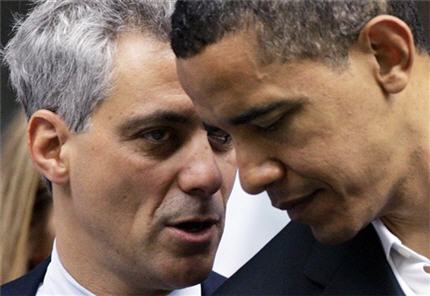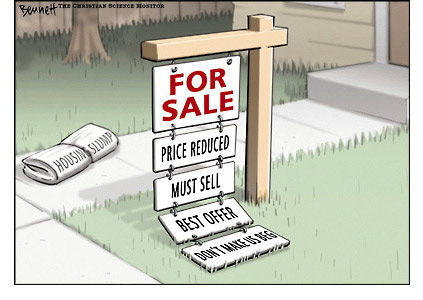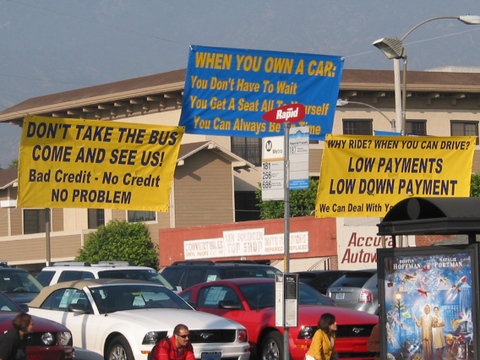 Remember the sentiments expressed by Obama’s Chief of Staff, Rahm Emanuel? He warned President Obama to never let a good crisis go to waste. I think it’s fair to say that Obama is a good listener and has taken those words to heart. Not only does he seize every opportunity to label each and every issue as a crisis to conveniently avoid his promise of transparency to the American people, but now he’s well on his way to creating his very own genuine crisis. This is no accidental crisis, ladies and gentlemen. We’re now in the business of creating them on purpose. Almost as if the administration has written a play book after studying exactly what took place in the housing crisis, it has set out to get the ball rolling on the “next big thing.”
Remember the sentiments expressed by Obama’s Chief of Staff, Rahm Emanuel? He warned President Obama to never let a good crisis go to waste. I think it’s fair to say that Obama is a good listener and has taken those words to heart. Not only does he seize every opportunity to label each and every issue as a crisis to conveniently avoid his promise of transparency to the American people, but now he’s well on his way to creating his very own genuine crisis. This is no accidental crisis, ladies and gentlemen. We’re now in the business of creating them on purpose. Almost as if the administration has written a play book after studying exactly what took place in the housing crisis, it has set out to get the ball rolling on the “next big thing.”
My husband, Mr. 1conservativemomma, has done a great job of explaining how the current administration’s “Cash for Clunkers” plan is digging America a deep, dark hole. His words are below:
How did the housing crisis start? To fully understand the nature of this question, and to accurately answer it as well, we have to turn the clock back several years to the start of the sub-prime mortgage frenzy. In short, political pressure, led by ACORN, was put on banks to offer housing options for low income families. Credit standards were lowered, and creative mortgage plans such as the Adjustable Rate Mortgage (ARM) and “interest only” mortgages soon became the under-qualified and even unqualified applicants’ best friend. Unfortunately, these were the ingredients for the recipe for disaster that eventually led to the housing crisis that ballooned near the end of 2008.
People often want what they cannot have, or in this case afford. It’s only human nature to desire bigger and better things. So when something, or someone, comes along and shows the masses an easier or quicker way to obtain that what they desire, all logic seems to go out the window. Millions of people bought homes with mortgages they could not afford, or could afford initially, but had no logical plan or means to keep up with future payments when payments started to rise, as stated in the fine print of their mortgage contracts which they probably did not read. The result was inevitable, but those who pushed for this type of “creative lending” failed to acknowledge this, even though the signs were there for all to see. As people started to fall behind on their mortgages, the banks started taking action. Foreclosures rose, and home values quickly fell. Eventually, this affected the responsible homeowners who only bought homes they could afford and paid their bills on time because the historical foreclosure rate soon caused even their homes to decrease in value too.
You would think that the administration would learn from the housing catastrophe and never again willfully entice people to buy what they cannot afford.
Fast forward less than one year later and the government introduced its “Cash-for-Clunkers” brain-child.
The premise of this plan is that you take your gas-guzzling vehicle to your local dealer and you will get up to a $4500 credit towards the purchase of a new fuel-efficient vehicle, such as a Toyota Camry. This is in addition to the “scrap value price” of your newly traded-in clunker.
Sounds like a pretty good deal, right? Of course it does. In fact, it is too good of a deal.
Just like all the under-qualified, low-income citizens who bought homes that they could not afford, “Cash-for-Clunkers” is enticing millions of people to purchase new cars that they cannot afford. I am not saying this is the case for all buyers who take advantage of this program, but it is for a rather large portion of them. We have to ask the question: why are they driving these old clunkers in the first place? Probably because they can’t afford a $600 car payment, in which the clunker allowance would only save approximately $90.00 a month on a 5-year finance deal. In addition, I highly doubt that the gas that is saved on a monthly basis will be enough to cover the difference either.
Mark my words, within the next year, you are going to see a large portion of these people falling behind on their payments and auto repossession will again rise. In addition, it will have a negative effect on those who purchased these cars without the Cash-for-Clunkers program, as it will start to decrease the value of their cars as well, just like the decline of home values in the housing crisis. Once again, the auto industry will be in trouble because buyers, those who still have jobs, will be purchasing the one year old cars at bargain prices, instead of buying new cars.
Do these clowns in government ever learn? Where is the common sense? Sure, it looks good on the books in the short term, but we will pay for it down the road. And remember, when you borrow from Peter to pay Paul, Peter will eventually come back to collect…with interest!



